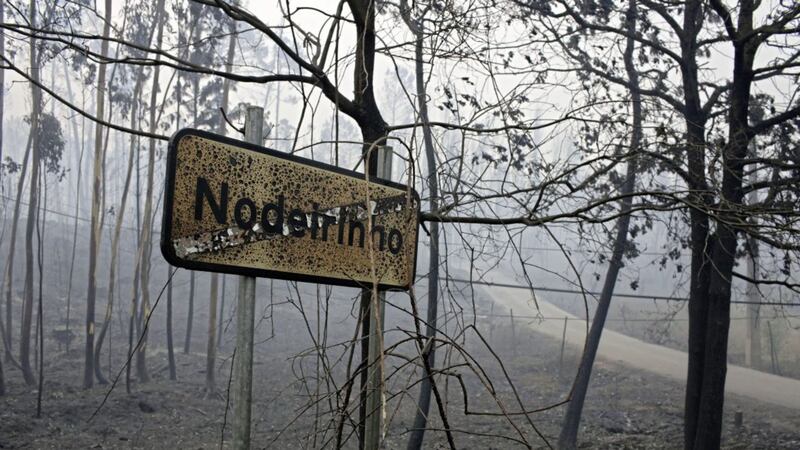More than 2,000 firefighters in Portugal are battling to contain major wildfires in the central region of the country, where one blaze killed 62 people.
Authorities have faced mounting criticism for not doing more to prevent the tragedy.
Reinforcements, including more water-dropping planes from Spain, France and Italy, were due to arrive as part of a European Union co-operation programme, officials said.
However, giant clouds of smoke were preventing the deployment of water-dropping aircraft on wildfires in the central region of the country where 62 people have died in the runaway flames, officials said.
Civil Protection Agency commander Elisio Oliveira told reporters on Monday morning that cooler night-time temperatures helped firefighters bring some blazes under control.
However, some of the wildfires are still racing through inaccessible parts of hill ranges about 150 kilometres (93 miles) north-east of Lisbon.
Portugal is observing three days of national mourning after the deaths on Saturday night around the town of Pedrogao Grande, about 150km north of Lisbon, which is by far the deadliest on record.
Scorching weather, with temperatures surpassing 40C (104F), as well as strong winds and dry woodland after weeks with little rain fuelled the blazes.
The fire area is covered in dense woodland over steep hills.
Portugal's leading environmental lobby group, Quercus, issued a statement blaming the blazes on "forest management errors and bad political decisions" by governments over recent decades.
The association rebuked authorities for allowing the planting of huge swathes of eucalyptus, the country's most common and most profitable species – but one that is often blamed for stoking blazes.
Emergency services have been criticised for not closing a road where 47 of the deaths occurred as people fled the flames on Saturday night.
The government has acknowledged that the huge fires occasionally led to a breakdown in communications.
Wildfires are an annual scourge in Portugal.
Between 1993 and 2013, Portugal recorded the highest annual number of forest fires in southern Europe, according to a report last year by the European Environment Agency.
The government announced a raft of new measures against wildfires in March.
They included restrictions on eucalyptus plantations and a simplified and cheaper programme of property registration that seeks to ascertain which land is being neglected.
Not all of those reforms have come into legal force yet.
Statistics show that 35 per cent of Portugal is covered by woodland.
The forest industry, especially the production of paper pulp, accounts for around 3 per cent of GDP.







